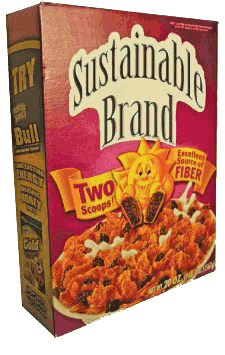Sustainable label update
by Joel Preston Smith
This article was originally published in November 2008

The U.S. Department of Agriculture (USDA) is in a huff over an independent organization’s move to define a national standard for sustainable agriculture.
The Undersecretary of Agriculture, Charles Conner, has warned the Leonardo Academy that its work on a “superlabel” for sustainably produced food “was not inclusive of all facets of U.S. agriculture” and was dominated by attempts to exclude “modern technologies.”
Conner said the academy’s efforts “would yield a biased outcome” and argued that the draft favors organic agriculture. The USDA also suggested that four of its representatives be admitted to the committee drafting the standard.
The Leonardo Academy is a Wisconsin nonprofit that develops voluntary standards for U.S. industry. Its executive director sent Conner a 51-page reply, noting that the U.S. Office of Management and Budget in 1998 advised federal agencies against “the appearance of undue influence” in the development of voluntary standards.
Conner has petitioned the American National Standards Institute to strip Leonardo of its accreditation as a standards developer.
The Leonardo Academy is preparing to defend the superlabel process at a hearing to be convened this winter. A spokesperson says, “We’re willing to work with the USDA but apparently it hasn’t been satisfying to them.”
The superlabel is expected to take as long as three years to reach a consensus among growers, processors and the marketplace as a whole.
